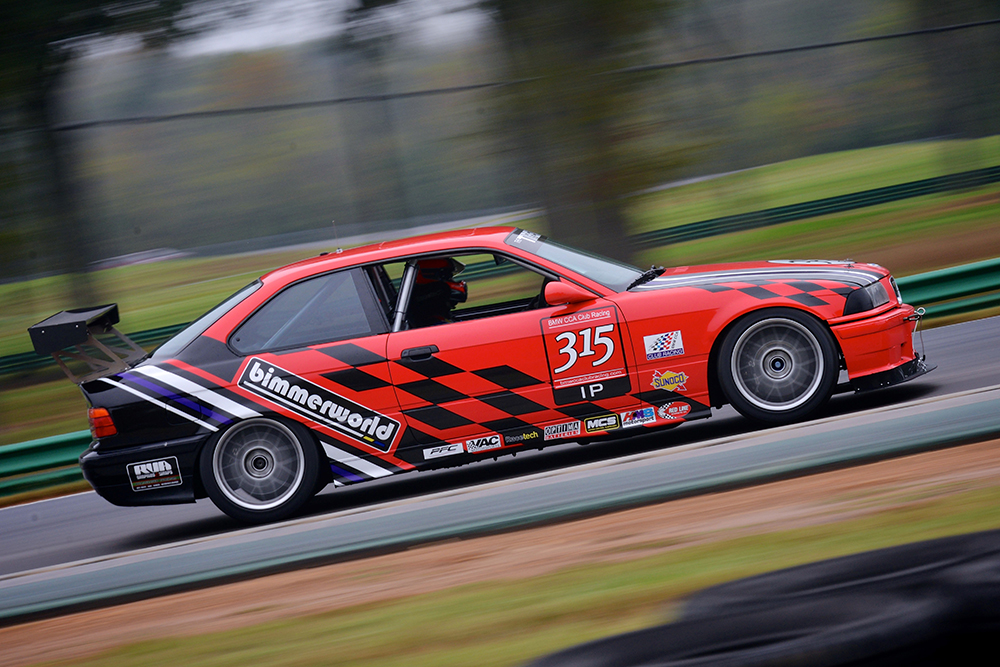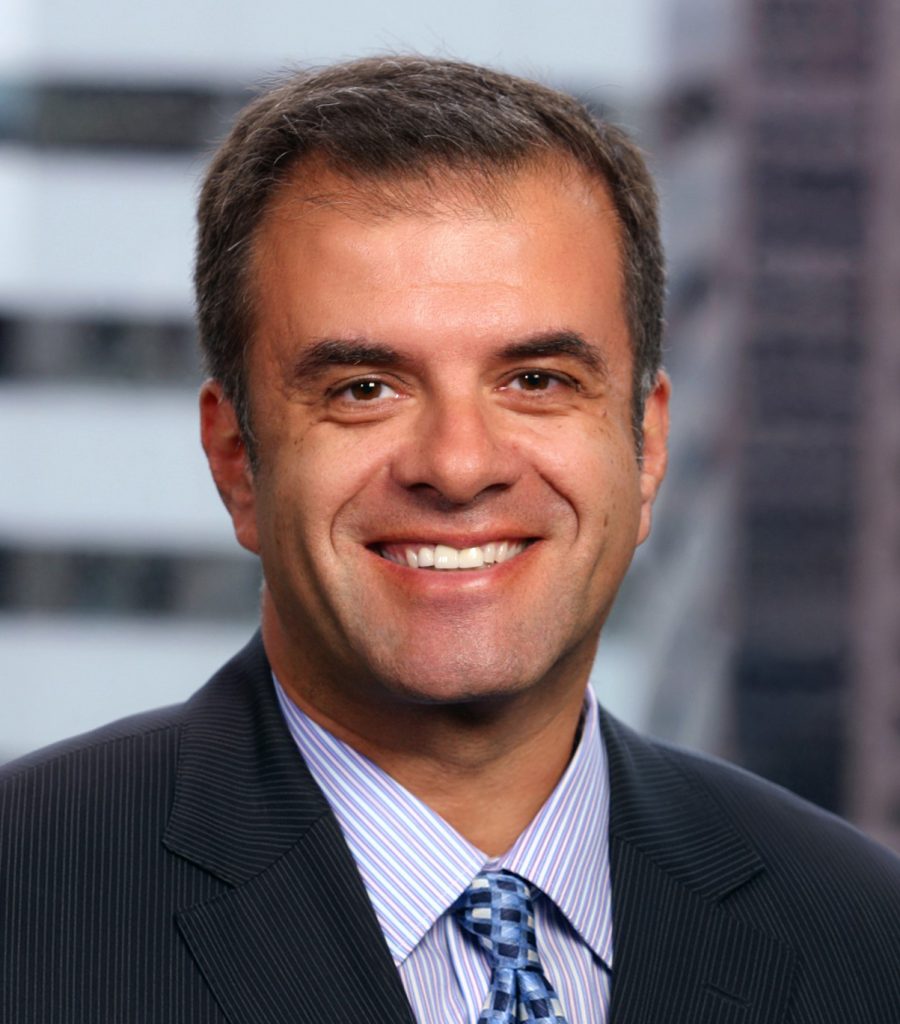
Lifson bought his BMW M3 used and put thousands of dollars into it to get it up to racing standards. He drives a Yukon XL SUV for the day-to-day grind.
But Lifson doesn’t just do it for the tiny stickers. He also gets bragging rights, pride – and clients for his law firm Christian & Barton, where, among other areas, he has an active motorsports practice addressing the needs of race track operators, event organizers, race teams and individual drivers.
It’s a long way from his childhood in Moscow where he went out of his way just to see cars.
BizSense caught up recently with the Amherst College and UVA Law grad to talk about his hobby – for which competes on road courses throughout the eastern U.S., with an eye towards others throughout the country – and how his pastime veers into his professional life.
The following is an edited transcript:
Richmond BizSense: When did your love affair with cars begin?

Lifson has been with Christian & Barton since 1998, after stints with firms in San Diego and Minnesota.
We immigrated to Minneapolis when I was 10. I learned to drive on my father’s ‘78 200 SX, when I went to college, I took an ‘82 Audi couple, all 100 horsepower of it. It was a great car; it got me all through college and you could fit nine people in it.
RBS: How did you get into road racing?
RL: In the early 2000s, I went to a half-day race school in open-wheel racing cars and liked that. But it wasn’t until 2006, when a friend invited me to Virginia International Raceway, that the bug really bit. I took my “family sedan” – albeit a BMW M5 with a 500-horsepower engine – and wound up signing up for additional HPD [high performance driving]. I did that for about a year and a half and moved up the ranks into eventually being able to drive solo. My first race was there at VIR as well, early in 2009.
RBS: What is road racing?
RL: First of all, in these races, we don’t drive around in circles. These are road courses which have multiple turns and elevation changes. Unlike NASCAR, we turn right once in a while! A race can last anywhere from 30 to 90 minutes, depending on the configuration of the track. The art is mastering the ability to get around those turns as fast as you can while navigating the competitors around you. On track, we’ve had as many as 80 cars out there.
You’ve got a strategy beforehand on how to set up your suspension, your tire pressure, your aero components, all based on the track, the temperature, and the weather (we all turn into meteorologists on race day ). There’s a lot of strategy before the race and then it goes out the window. As Mike Tyson said, ‘everybody’s got a plan until they get punched in the face.’
RBS: What do you drive?
RL: After a year and half of driving the M5, I realized that hitting 160 miles per hour with nothing but a three-point seatbelt and a helmet was not a good idea. So I retired that car from the track and got one that’s specifically for the track with all the safety gear. I bought a very used BMW M3 from the late ‘90s and had a lot of work put into it to get it up to the safety standards.
The car itself was about $10,000, and then with everything else that went in it … I try not to add it up. The cage (a steel tubular structure in the occupant compartment) alone was about $5,000. Because there are different classes, you can get into what you can afford. But there definitely is expense: entry fees, tires, brakes, fuel, travel. It’s not a moneymaking venture.
By the way, there’s no insurance when your car’s on the track. One of the many adages is ‘don’t race something you can’t afford to wreck.’
RBS: Have you had close calls?
RL: I once had brake failure coming into Turn 1 at VIR at 135 miles per hour. As it’s happening, what’s on your mind is getting as much control as you can to put it in the least dangerous position.
Luckily, there was a lot of runoff room. Instead of making the turn, I went off through a long patch of grass and hit a wall built from a bundle of tires. It was remarkable because my car went so deep into the tire wall that it knocked off right mirror. I had no injury whatsoever, but it gets your attention.
RBS: How does racing complement your professional life?
RL: It started when the folks at VIR asked me to do some legal work for them and it blossomed from that. It’s been great relationship. The Road Racing Industry Council asked me to come address them several times about operating race tracks. I’ve met a lot of professional drivers and have been asked to help them. I’ve also represented race tracks from Virginia to California.
This is the latest entry of BizSense’s recurring feature called Downtime, focusing on how businesspeople in Richmond spend their time when they’re out of the office. If you or someone you know fits the bill with quirky hobbies or adventure-filled weekends, please email Michael@richmondbizsense.com.

Lifson bought his BMW M3 used and put thousands of dollars into it to get it up to racing standards. He drives a Yukon XL SUV for the day-to-day grind.
But Lifson doesn’t just do it for the tiny stickers. He also gets bragging rights, pride – and clients for his law firm Christian & Barton, where, among other areas, he has an active motorsports practice addressing the needs of race track operators, event organizers, race teams and individual drivers.
It’s a long way from his childhood in Moscow where he went out of his way just to see cars.
BizSense caught up recently with the Amherst College and UVA Law grad to talk about his hobby – for which competes on road courses throughout the eastern U.S., with an eye towards others throughout the country – and how his pastime veers into his professional life.
The following is an edited transcript:
Richmond BizSense: When did your love affair with cars begin?

Lifson has been with Christian & Barton since 1998, after stints with firms in San Diego and Minnesota.
We immigrated to Minneapolis when I was 10. I learned to drive on my father’s ‘78 200 SX, when I went to college, I took an ‘82 Audi couple, all 100 horsepower of it. It was a great car; it got me all through college and you could fit nine people in it.
RBS: How did you get into road racing?
RL: In the early 2000s, I went to a half-day race school in open-wheel racing cars and liked that. But it wasn’t until 2006, when a friend invited me to Virginia International Raceway, that the bug really bit. I took my “family sedan” – albeit a BMW M5 with a 500-horsepower engine – and wound up signing up for additional HPD [high performance driving]. I did that for about a year and a half and moved up the ranks into eventually being able to drive solo. My first race was there at VIR as well, early in 2009.
RBS: What is road racing?
RL: First of all, in these races, we don’t drive around in circles. These are road courses which have multiple turns and elevation changes. Unlike NASCAR, we turn right once in a while! A race can last anywhere from 30 to 90 minutes, depending on the configuration of the track. The art is mastering the ability to get around those turns as fast as you can while navigating the competitors around you. On track, we’ve had as many as 80 cars out there.
You’ve got a strategy beforehand on how to set up your suspension, your tire pressure, your aero components, all based on the track, the temperature, and the weather (we all turn into meteorologists on race day ). There’s a lot of strategy before the race and then it goes out the window. As Mike Tyson said, ‘everybody’s got a plan until they get punched in the face.’
RBS: What do you drive?
RL: After a year and half of driving the M5, I realized that hitting 160 miles per hour with nothing but a three-point seatbelt and a helmet was not a good idea. So I retired that car from the track and got one that’s specifically for the track with all the safety gear. I bought a very used BMW M3 from the late ‘90s and had a lot of work put into it to get it up to the safety standards.
The car itself was about $10,000, and then with everything else that went in it … I try not to add it up. The cage (a steel tubular structure in the occupant compartment) alone was about $5,000. Because there are different classes, you can get into what you can afford. But there definitely is expense: entry fees, tires, brakes, fuel, travel. It’s not a moneymaking venture.
By the way, there’s no insurance when your car’s on the track. One of the many adages is ‘don’t race something you can’t afford to wreck.’
RBS: Have you had close calls?
RL: I once had brake failure coming into Turn 1 at VIR at 135 miles per hour. As it’s happening, what’s on your mind is getting as much control as you can to put it in the least dangerous position.
Luckily, there was a lot of runoff room. Instead of making the turn, I went off through a long patch of grass and hit a wall built from a bundle of tires. It was remarkable because my car went so deep into the tire wall that it knocked off right mirror. I had no injury whatsoever, but it gets your attention.
RBS: How does racing complement your professional life?
RL: It started when the folks at VIR asked me to do some legal work for them and it blossomed from that. It’s been great relationship. The Road Racing Industry Council asked me to come address them several times about operating race tracks. I’ve met a lot of professional drivers and have been asked to help them. I’ve also represented race tracks from Virginia to California.
This is the latest entry of BizSense’s recurring feature called Downtime, focusing on how businesspeople in Richmond spend their time when they’re out of the office. If you or someone you know fits the bill with quirky hobbies or adventure-filled weekends, please email Michael@richmondbizsense.com.



Thanks for the great article and VIR considers Roman a good friend.
Neat story
Nice piece about VIR and Roman Lifson.
….And he played a pretty mean 3B for the Christian and Barton softball team as well! Good times!